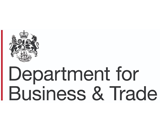LANDMARK SECONDARY TICKETING PROSECUTION
LANDMARK PROSECUTION FOR SECONDARY TICKETING FRAUD
Two ‘ticket touts’ from London have been found guilty of fraudulently and dishonestly buying and reselling tickets for high-profile music and entertainment events. The landmark case at Leeds Crown Court marks the first successful prosecution against a company fraudulently reselling tickets on a large scale. It follows an investigation by the National Trading Standards eCrime Team, which is hosted by North Yorkshire County Council and City of York Council.
Peter Hunter, aged 51, and David Thomas Smith, aged 66, ran BZZ Limited, a multi-million pound limited company through which they purchased and resold hundreds of tickets at inflated prices for events and concerts such as Ed Sheeran, Harry Potter and the Cursed Child (the play), Madness, McBusted and many other mainstream acts. The pair will be sentenced on 24 February 2020.
The pair were found guilty on four counts:
- Fraudulent trading – namely by knowingly enabling BZZ Limited to purchase event tickets for resale and/or fraudulently reducing the number of event tickets available for consumers to purchase at face value
- Possession or control of an article for use in fraud – including the use of bots and debit/credit card payments held in the names of people other than BZZ Limited
- Fraudulent trading – based on continuing the business of BZZ Limited for a fraudulent purpose between 19 May 2010 and 13 December 2017, namely by offering for resale tickets which were at risk of being refused entry and/or falsely representing that said event tickets offered for resale were valid
- Fraudulent trading – by listing and offering event tickets on secondary ticket websites that they did not own, and/or falsely representing that BZZ Limited did own the said event tickets.
The investigation by National Trading Standards found that the defendants used several dishonest and fraudulent tactics to purchase multiple tickets from primary ticket sellers such as Ticketmaster, Eventim and AXS. This meant that BZZ Limited was dishonestly and fraudulently competing with consumers to purchase tickets from the websites of primary sellers while, at the same time, listing those tickets for sale to consumers at inflated prices.
Furthermore, the company’s tactics circumvented the platforms’ terms and conditions and their automated systems to block multiple purchases. This saw them purchase more than 750 Ed Sheerhan tickets in 2017. Despite knowing that their purchases had contravened the primary sellers’ terms and conditions – making tickets liable to be cancelled – the defendants knowingly continued to resell hundreds of tickets to consumers at inflated prices.
To evade the platforms’ systems, the defendants:
Used a number of different people to buy tickets
Applied other people’s personal details to purchase tickets
Deployed at least 97 different names, 88 postal addresses and more than 290 email addresses to evade platform restrictions. These identities were enhanced through the use of bots, which are designed to support the automated bulk-buying of tickets. Emails to the 290+ email addresses were all auto-forwarded to one email address held by BZZ Limited
Used different IP addresses and concealed their IP address – their internet identity – to disguise bulk buying.
The defendants also engaged in fraudulent trading by listing tickets for sale on secondary ticketing websites that they had not purchased and did not own. Known as ‘spec selling’, the idea was to induce consumers to agree to ‘buy’ non-existent tickets at an inflated price. Once sales had been secured, the defendants would try to source the tickets to fulfil the purchase.Consumers were therefore tricked into paying an inflated price and also exposed to the risk that BZZ Limited would be unable or unwilling to supply the ticket.
Lord Toby Harris, Chair of National Trading Standards, said:
“Millions of people spend their hard-earned money on tickets such as music concerts and sporting events each year. Buying a ticket in good faith and then discovering it is part of a dishonest fraud can be deeply distressing and can have a considerable financial impact on consumers.
“This is a landmark case for National Trading Standards and should reassure consumers that the fraudulent practices of secondary ticket sellers will no longer be tolerated. I hope this prosecution leads to a step-change in the secondary ticketing market, making it easier and safer for consumers buying tickets in the future.”
The investigation was led by the National Trading Standards eCrime Team, which has prepared a checklist for consumers looking to buy tickets online.
| BUYING TICKETS ONLINE - YOUR CHECKLIST Buy tickets from authorised sources – buy your tickets or check ticket availability with an official agent or reputable ticket supplier. If in doubt, check the website of the festival or event for more information on their official vendor
|
Councillor Andrew Waller, executive member with responsibility for Trading Standards at City of York Council, said:
“I applaud our expert investigators at National Trading Standards for unveiling and successfully prosecuting another e-crime, and that the directors of BZZ Entertainment are now facing the consequences of their appalling actions.
“This verdict sends a clear message that those who mislead and defraud consumers will face justice. Anyone who suspects they may have fallen victim to similar websites should contact Trading Standards via the Citizens Advice Consumer Helpline on 0808 223 1133.”
North Yorkshire County Councillor Andrew Lee, Executive Member for Trading Standards, said:
“This case has highlighted the ways some touts have defrauded consumers using the secondary ticketing marketing market. It not only warns touts that such practices will not be tolerated, but also calls on secondary ticketing companies to ensure consumers get fairer treatment.”






